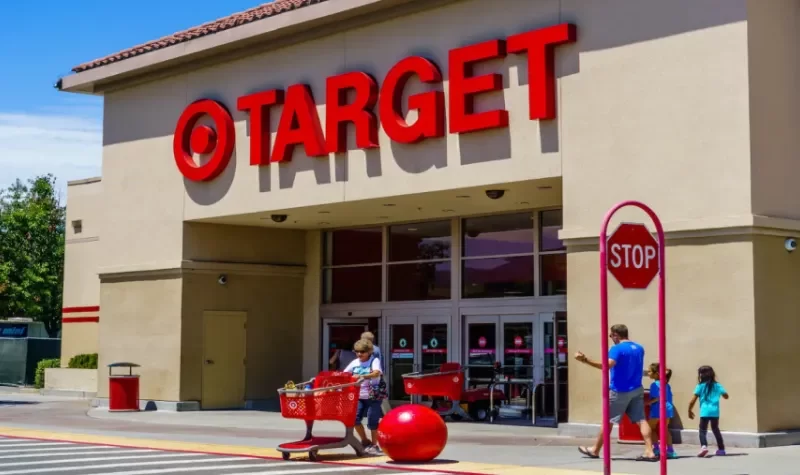Knowing the answer to, “How long does it take to hear back from a job application?” can help you understand how employers sort applications before contacting candidates.
After submitting an application for a position, it typically takes one to two weeks to hear back. Some businesses fill open positions quickly, while others may have a more drawn-out hiring process that can take up to six weeks.
Read on for more information.
Table of Contents
Factors for Determining When You Can Expect to Receive a Response from a Job Application
Here are some factors to help you determine how long it might take to hear back from an employer after sending your resume:
Closing Date of a Job Post
After the closing date of the job posting, employers typically review the applications. To find out the closing date, which is typically the day a company stops accepting applications, take a look at the job description. In this situation, you can expect feedback one to two weeks after the application deadline. Afterward, you can decide when to send a follow-up email if the employer takes a while to respond.
Application Tracking System
To sort job applications, some businesses use applicant tracking systems (ATS). Within 48 hours of submitting your application for a job, you might get an automated email telling you that it was accepted by the company. Because it makes it easier for them to screen resumes and quickly select a qualified candidate for the job role, you might hear back from an employer using an ATS within just a week.
If a resume lacks the job title, relevant keywords, or the applicant’s years of experience, the applicant tracking system (ATS) may automatically disqualify it. To get past the ATS screening, make sure to optimize your resume using the keywords from the job description.
Type of Company
The time frame for anticipating a reply to a job application can vary depending on the business. Because there are several steps in the hiring process without a set deadline for contacting candidates, it may take six to eight weeks to hear back from an employer for a government position. You can typically anticipate a response within a couple of days from small businesses because they frequently need to fill vacancies quickly. The review process for numerous applications at large companies could take up to a month.

Why You Might Hear Back Quickly
Sometimes hiring managers will get in touch much sooner. That typically occurs in situations where the position in question is crucial to business operations (but isn’t overly senior). It’s possible that the previous employee quit abruptly, leaving the company in a bind and losing money.
When that happens, hiring managers tend to work fast to find suitable candidates and move the hiring process forward. In this case, hearing back in a few days at most is not unusual!
If you’re lucky, you might get a response sooner than two weeks because of how well your application stood out. Employers can hasten the hiring process if they feel you’re a good fit. Consider yourself lucky in those moments!
It’s important to remember that some employers start looking over resumes right away. There has been some research that found applying early in the process can help you get noticed. Apply as soon as you can, if at all possible.
Why You Might Have to Wait a While
However, it’s not uncommon for it to take much longer than two weeks to hear back from a job. Companies occasionally wait a month before getting in touch with a candidate to share good news, but it’s not unheard of. Before contacting potential hirees, some government jobs have been known to take up to eight weeks!
Looking at it from the outside, hiring managers wouldn’t be wise to wait that long. But in many instances, they have no control over it.
As you look for a job, things may change internally. The criteria for hiring may change, and businesses may opt for an internal promotion or alter their criteria in the middle of a search.
Another problem might be the timing. For instance, the company might be understaffed as a result of vacations, or perhaps they’re setting a new budget and need to wait until everything is approved before moving forward. Whatever the circumstances, those unusual timelines do happen occasionally.
Generally speaking, you should wait at least two weeks after applying for a job to hear back before assuming you weren’t hired. There’s still a chance that employers could reach out after the two-week point, and this is why it’s so important to reach out or follow up after two weeks.
Another important thing to keep in mind is that the countdown should begin following the posting’s closing date. You might or might not find this information in the job posting. The final day that the employer will accept applications is the closing date.
Some recruiters won’t even begin looking for qualified candidates until after that deadline. So, your two-week countdown can begin there for good measure.
If there isn’t a deadline listed, you can begin the two-week period as soon as you receive confirmation that the company has received your application and resume. A system for screening applications is used by many large applications. When everything has been received, the software usually automatically sends an email.
It’s crucial to follow some of the instructions below if you don’t get an automated response confirming that your application was received.

What to Do When You’re Waiting to Hear Back About a Job
The single most crucial action to take while waiting for a response on a job application is to keep applying to new positions. Waiting for just one employer will make you more anxious and limit your options in the job market, which could prolong your unemployment.
Employers typically interview 6-10 candidates per job. They frequently change their search criteria in the middle of it, decide to promote someone internally, put jobs on hold, etc.
The point is that waiting for a single employer after applying for a job is risky because there are too many unpredictable variables in the job search.
In fact, you should CONTINUE applying for jobs even if you recently had an interview and are confident it went well.
My rule is: Don’t stop applying until you’ve signed a job offer and set a start date. Because most job seekers don’t do this, their job search ends up taking weeks or months longer than it should have.
Therefore, the number one thing to avoid doing while you’re waiting to hear back about a job is to stop applying, anxiously check your phone or email, and place your future in the hands of one particular employer. That is only a recipe for disappointment and potential catastrophe.
How to Get Responses Faster After Submitting Your Resume
We talked about how long it takes for a job to respond to your application and what to do while you’re waiting for a response.
Now I want to give you a couple of ways to boost your chances of hearing back and shorten the waiting time!
First, make sure you fine-tune and customize your resume for each job you apply to.
Employers get a lot of resumes, but if they think you’re a great fit for their particular requirements, they’ll be more likely to respond (and respond FAST).
That’s what employers are thinking when you apply… “Can this person step in and succeed in this position? How long will it take them to catch up?”
To demonstrate that you are prepared to succeed, customize your resume!
How can you determine what they specifically need? The best place to start is with the job description.
Next, make an effort to connect with employers through your network. This article explains some basics of job search networking.
Find out what and who your current network knows (such as hiring managers, particular businesses that are hiring, etc.) by speaking with them.)
Additionally, think about making new connections on LinkedIn or in other places.
Start by asking something small, like, “Bethany, I noticed that you joined IBM two years ago. How have you found the workplace since you joined?”
That could pave the way for establishing some rapport and trust and requesting an introduction to a hiring manager!
The average wait time after applying for a job can be decreased in these two ways, but more importantly, a higher response rate can be obtained overall.

Summary: How Long Does It Take to Hear Back from a Job Application?
You are now aware of the typical time it takes to hear back or receive a response after submitting a resume. Additionally, while it will always take some time for employers to review your application and respond, you can increase the frequency and speed of responses by tailoring your resume and making connections with employers through networking.
I covered these tips throughout the article above, so if you scrolled down to the bottom and skipped most of the article, I’d recommend taking a closer look.



